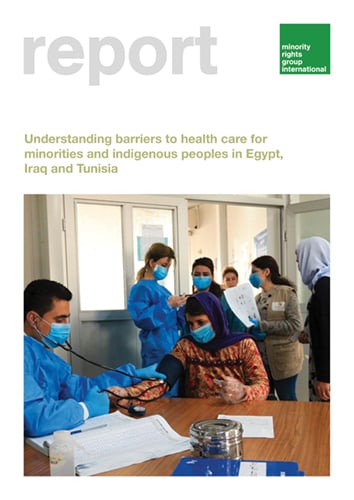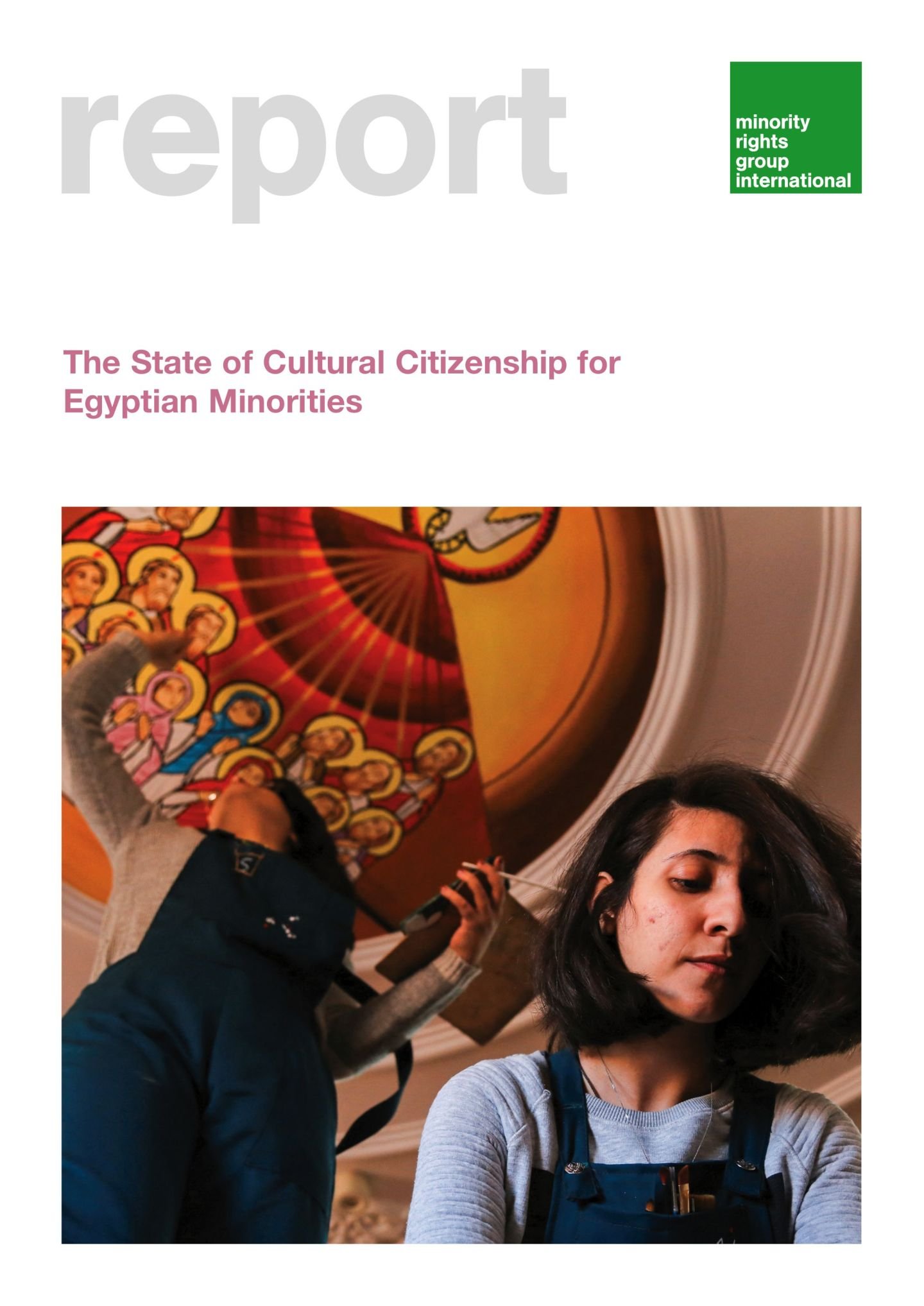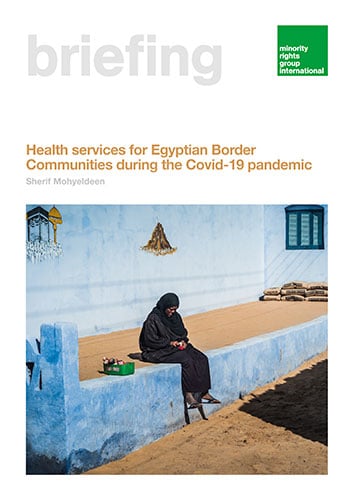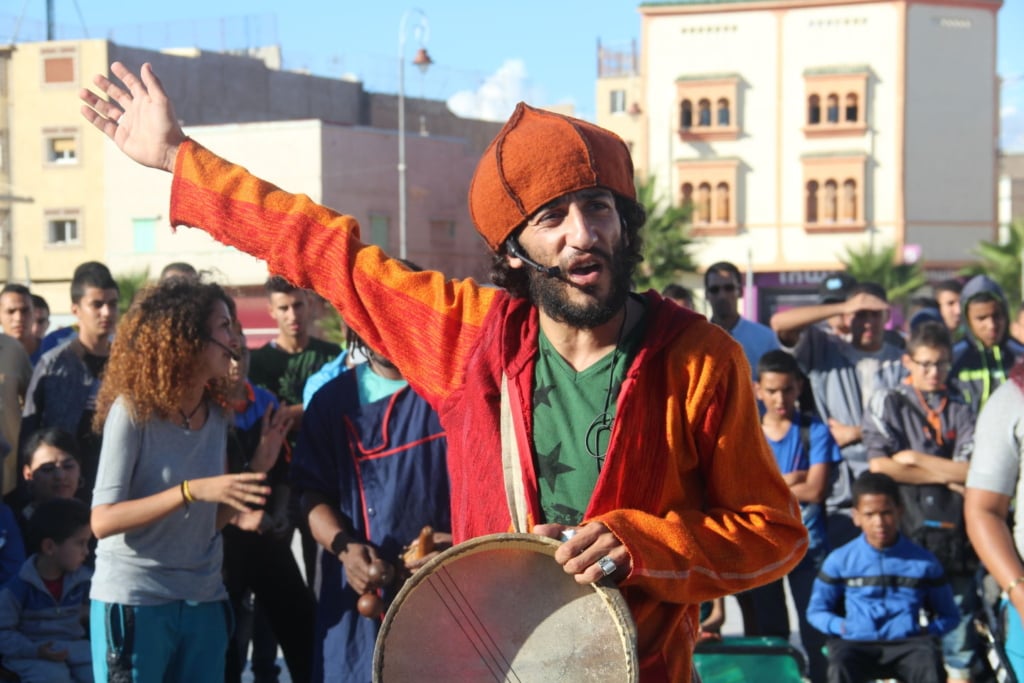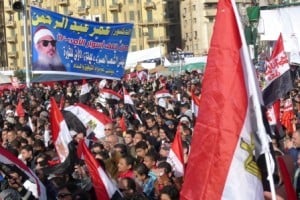Egypt
-
Main minority and indigenous communities: include Copts est. 4.7-7.1 million (6-9 per cent: Source: ICG lower estimate/CIA Yearbook higher) though other estimates put them at between 10 – 20 per cent of the population, so potentially exceeding 15 million (Source, Washington Institute) Nubians 200,000 (0.25%) (source: Ethnologue 1996); Baha’i 2,000-3,000 (source: US State Department 2015, International Religious Freedom Report) and Jews, fewer than 30. (source: US State Department 2015, International Religious Freedom Report). Other minorities include: Shi’a, Jews, Sufi Muslims, Jehova’s Witnesses, Ahmadis and Quranists.
Main religions: Islam, Coptic Christianity.
Main languages: Arabic (official).
Many Egyptians are descended from the successive Arab settlers who followed the Muslim conquest in the seventh century, but many others are not. While many Egyptians refer to the majority ethnic identity as ‘Arab’ (and indeed Egypt’s leader at independence preached pan-Arabism), others use the term ‘Egyptian’ as an ethnic as well as a national moniker and point to their shared civilization in the Nile Valley for centuries before the Arab arrival. Those who use the ethnic term ‘Egyptian’ are sometimes accused of nationalism in the Arab world. Nubians living south of Aswan have been Islamized and Arabized in religion and culture, although they still speak the Nubian language, Nobiin. Nomads who live in the semi-desert have both Arab and Amazigh (Berber) backgrounds.
The Copts are indigenous Egyptian Christians, the vast majority belonging to the Coptic Orthodox Church. They live throughout Egypt but are concentrated in Alexandria, Cairo and the urban areas of Upper Egypt (southern Egypt). They represent between around 6- 9 per cent of the total population, but their proportion is much higher in the south; some estimates put their true proportion at between 10 and 20 per cent of the national population. Most Copts are working class peasants and labourers, although there is a Coptic business upper class and a middle class of urban professionals and small landowners. Copts are present in most institutions of the state, and there are Coptic members of all registered political parties.
Whereas Sharia law recognises Coptic Christians as ‘people of the book’, no such tolerance exists for the tiny Baha’i community. Baha’i is a religion with roots in Shi’a Islam that emanated from Persia in the 19th century. Because the Baha’i believe that God’s word is passed to humans through an ongoing series of revelations, it clashes with Islam’s view that the Prophet Mohammed received the final revelations. Its followers face severe discrimination in Egypt.
By the twelfth century there were up to 20,000 Jews in Egypt. Under Ottoman rule they faced institutional discrimination, but during the nineteenth century their status improved, and they achieved prominence in commerce and industry. By the 1940s, 65,000-70,000 Jews lived in Cairo, Alexandria and other urban communities. The 1948 Arab-Israeli war saw hundreds of Jews arrested, their property and businesses confiscated; bombings in Jewish areas killed and maimed hundreds. Some 25,000 Jews left Egypt between 1948 and 1950, many going to Israel. In 1952 anti-British sentiment led to attacks on Jewish establishments, and after the 1956 war, 3,000 Jews were interned and thousands of others were given a few days to leave the country, while their property was confiscated by the state. By 1957 only 8,000 Jews were left. Hundreds of Jews were arrested and tortured after the 1967 war, and those still in public employment were dismissed. As a result of further emigration, by 1970 there were only 1,000 Jews in Egypt, and today only a handful of community members remain, most of them elderly.
There are also around 1,000-1,500 Jehovah’s Witnesses living in Egypt: despite being a form of Christianity, the faith is not officially recognized. Congregations were formally established in the country from the 1930s and were able to practice with relative freedom until the 1950s. However, despite receiving formal recognition during this period, first in Cairo in 1951 and then in Alexandria in 1956, the Jehovah’s Witnesses suffered an increasing wave of hostile rumours alleging them to be covert Zionists and a threat to national security. In 1959 they were obliged to halt their activities and the following year, like Bahá’í, were declared illegal by presidential decree. In the decade that followed, in particular, its adherents were exposed to serious maltreatment.
Egypt also has a number of smaller minorities who also continue to face marginalization and discrimination. These include Ahmadiyya, who are followers of a modern Islamic sect that is considered heretical by some traditional Muslim scholars. There is also a small group of Quranists: Muslims who regard the Qur’an as the only valid religious source for Islam. They have experienced state harassment due to its perception of the group as unorthodox.
-
While he has enjoyed support among many Egyptians, including minority community members and leaders, the rule of Abdel Fattah el-Sisi has brought with it rising authoritarianism and widespread human rights abuses, including arbitrary arrests, torture, and forced disappearances, especially of perceived supporters of the outlawed Muslim Brotherhood and other political opposition. Sisi has publicly declared a commitment to combatting religious extremism but disaffection towards the government, even more pronounced in the context of a faltering economy, has fuelled extremist attitudes among sections of Egyptian society.
Bedouin in the Sinai
In recent years, the military campaign against the Sinai-based affiliate (also known as Wilayat Sinai) of Islamic State of Syria and al-Sham (ISIS) has escalated, as have extremist attacks on security personnel – leading to a security clamp-down and human rights abuses by both sides in the Sinai. The conflict has led to a drastic deterioration in the situation for Egypt’s Bedouin population. However, this cannot be separated from the Bedouin’s status as an excluded minority, for decades regarded with suspicion and mistrust by the central government. The most recent violence reflects a more general securitized approach to the Bedouin population in Sinai, with security forces frequently engaged in collective punishment of local communities and a punitive approach that often does not distinguish between civilians and armed groups in the area. This is reinforced by the persistent failure of the state to address the underlying injustices and inequalities that have contributed to Bedouin disaffection in the region.
The violence continued throughout 2018, beginning with the launch in February 2018 of Operation Sinai 2018 – a full-scale military operation that aimed to eradicate armed groups in North Sinai. By May, more than 3,000 buildings had been destroyed, resulting in widespread evictions, loss of livelihoods and an estimated 420,000 people in North Sinai requiring immediate humanitarian support. A further displacement has occurred along the border with Gaza, where the military have moved Bedouin away in order to create a buffer zone. There have been no clear signs from the Egyptian government that the forcibly displaced Bedouin will be provided with suitable housing alternatives or adequate compensation. On the contrary, the government has continued to justify this wanton destruction in security terms.
Due to the government’s almost total restrictions on media access in North Sinai, it is very difficult to make an accurate assessment of the scale of damage to the local community in this area. This has helped create a climate of impunity for Egyptian armed forces in the region, while exacerbating the vulnerability of local residents. The nature of the conflict was illustrated by the military’s use of cluster bombs in the first weeks of the fighting, a form of munitions banned in international law. The use of this indiscriminate weaponry, which poses a high risk of death or injury to civilians and non-combatants, suggests that the protection of communities from the conflict was not a priority for security forces. Furthermore, while hundreds have been killed in the fighting, including many civilians, evidence has emerged that some of those killed by security officers may have been executed in staged extrajudicial killings.
The government is not the only actor that has violated the rights of Bedouin in this conflict. Extremists have also targeted Bedouin, kidnapping and killing those they accused of cooperating with the military. Indeed, many Bedouin civilians have found themselves caught between the army and extremists in the current conflict, with some targeted by the latter for supposedly providing assistance to the security forces. While armed militant groups have carried out a large number of human rights violations in the region, including the filmed beheading of two elderly Sufi clerics in November 2016 for ‘divination’, as well as the killing of at least seven Coptic Christians in al-Arish in February 2017, the most egregious incident was the November 2017 attack on a Sufi mosque in Bir al-Abed, a Bedouin village, that left at least 235 dead and wounded 109 others. The victims were mostly Bedouin and included children. The attack was widely condemned, even by other armed groups in the region, and further alienated Wilayat Sinai from local Bedouin.
Throughout Operation Sinai, inhabitants of the Sinai region have struggled to access adequate supplies of food, medicine, fuel and other essentials due to government-imposed sanctions and blockages. Egyptian authorities were also accused of cutting telecommunication services for several days at a time and in eastern parts of North Sinai, including Rafah and Sheikh Zuwayed; water and electricity were almost completely cut off in the early months of 2018. By destroying hundreds of hectares of farmland, the Egyptian army also violated food security for many Bedouin families. The Egyptian military has also enforced other restrictions on local residents in North Sinai from the outset, including the closure of schools, universities and telecommunications networks. Militant groups have also imposed severe restrictions on communities in areas under their control. This includes the creation of Hisba, a religious morality police governed by Shari’a law, who enforce various rules on smoking, shaving of beards, the wearing of the niqab and other issues.
Despite the government’s promises to deliver economic development to the region, in practice these opportunities have yet to materialize. Some unofficial estimates, for example, have suggested that unemployment levels may be as high as 60 per cent. This predicament has only worsened since military operations have brought widespread devastation to local agriculture. In particular, many farms and olive trees, central to the livelihood and culture of Sinai’s Bedouin, have been intentionally destroyed by military forces.
Religious minorities
Rather than resolving issues of inter-communal conflict, the government has continued playing a role in entrenching divisions within Egyptian society. Mainstream political and religious attitudes, tightly policed by the state, have long eschewed pluralism and privileged a particular conception of Sunni Islam as supreme. Through various policies and practices the Sisi government has continued to restrict the rights of minorities, particularly Coptic Christians, Shi’a Muslims and Baha’i. In a move that could have severe repercussions for minority rights activists, the Egyptian parliament passed a bill in November 2016 restricting the activities of non-governmental organizations, effectively seeking to ban all human rights and development work not mandated and closely monitored by state authorities. It was signed by Sisi and entered into force at the end of May 2017. The law calls for the establishment of a new state authority to regulate ‘foreign NGO’s.’ The authority must be notified about foreign funding and projects. Non-notification can lead to fines and imprisonment up to 5 years.
Sisi has made conciliatory public gestures towards the Coptic minority, such as regularly attending the Coptic Christmas mass and promising to rebuild churches previously damaged in sectarian attacks. Since he led the overthrow of an Islamist government in 2013 and later became President, Sisi and his government have received support from the Coptic Orthodox Church under Pope Tawadros II. Yet many Egyptian Copts hold opinions at odds with church leadership, as evidenced by a joint statement issued in September 2016 by 800 prominent figures, including Copts, insisting the church’s growing closeness with the regime has only put the community at greater threat of sectarian violence.
A number of recent attacks against the community have been particular deadly, including a bomb on 11 December 2016 that struck St. Peter and St. Paul’s Church, next to the seat of Pope Tawadros II in Cairo, killing 29 people and wounding dozens more. In February 2017, ISIS released a statement claiming responsibility for the December attack and threatened to escalate a deadly campaign of assassinations and intimidation against Copts in North Sinai, which caused hundreds of families to flee to other governorates that month. ISIS then bombed two Coptic churches on Palm Sunday in April 2017, first in the city of Tanta and then Alexandria, killing nearly 50 people and leaving more than 100 wounded. In May, an attack by ISIS militants on a busload of pilgrims heading for the St. Samuel the Confessor monastery left 29 dead.
At the beginning of November 2018, armed attackers again ambushed three buses carrying pilgrims on their way to the St. Samuel the Confessor monastery. Seven people were killed and 19 were wounded. The Sinai-based affiliate of ISIS, Wilayat Sinai, claimed responsibility. It was the second attack in as many years targeting that particular monastery, leading commentators to wonder whether any proper security measures had been put into place after the first May 2017 attack. The monastery lies in Minya which has the biggest percentage of Coptic Christians – 35 per cent – of any Egyptian province. Minya has been the target of many of the recent violent attacks against the Coptic community.
Through striking ‘soft targets’, the series of attacks, the deadliest violence against Coptic Christians in Egypt in decades, was widely regarded by international observers to have been aimed at both harming Copts themselves while at the same time highlighting the state’s inability and unwillingness to adequately protect its citizens. While attacks by ISIS against the Coptic community have attracted widespread international attention, less attention is paid to the frequent and often deadly sectarian attacks against them by local communities.
A key factor in the prevalence of sectarian attacks against Coptic communities is the continued practice of ‘reconciliation sessions’ between communities, often with the active encouragement of police and officials. This reliance on informal justice approaches that are usually weighted heavily in favour of the Muslim majority is further entrenched by the failure of security forces and the formal judiciary to discharge their responsibilities to prevent and punish targeted attacks on Copts.
Indeed, the typical approach of authorities to resolving conflict after an outbreak of mass violence can leave Copts in an even more precarious situation. Following an incident, arrests are often made on both sides, including Coptic community members targeted in the attacks, and are then referred to the court who frequently hand out harsh sentences to both parties. This approach forces the victims to agree to an extra-legal reconciliation session and with it an end to all judicial proceedings against the assailants. The policy, besides undermining the rule of law and denying victims the right to remedy, also enables further attacks by promoting a climate of impunity for the perpetrators.
The semblance of equality in the reconciliation approach is in reality a highly partisan process that disempowers the Coptic victims of communal attacks while appeasing the members of the Muslim majority responsible for the violence. Furthermore, these sessions can entail clauses that represent major rights violations, including what amounts to collective punishment: for example, a ban on group prayers in the village or the forcible displacement of Copts elsewhere.
Reconciliation sessions do not treat different religious communities equally. For example, when the accused are Christian, the reconciliation sessions usually go hand in hand with the continuation of legal proceedings against them. When the alleged offenders are Muslim, on the other hand, the reconciliation sessions usually bring an end to any further legal proceedings against them. Importantly, customary sessions cannot be disputed nor appealed. There is no supervision by the judicial authority over the arbitrators and these processes often operate as a parallel framework that enables perpetrators of rights abuses to evade accountability for their crimes.
Police and security forces frequently lead or take part in extra-legal reconciliation sessions, further compromising their role in law enforcement, particularly as many sessions end in rulings that directly violate Egyptian domestic laws or constitutional provisions. As already mentioned, police forces may pressure Copts to sit in reconciliation sessions by arresting members of both the Coptic and Muslim parties. One of the possible conclusions of reconciliation sessions is forced displacement. Out of six reported incidents of forced displacement of Christian families between June 2014 and June 2018, in only two cases have they been able to return to their homes.
State complicity in the perpetration of violence and discrimination against minorities has been evident also in relation to the longstanding issue of construction and renovation of places of worship. Ostensibly fulfilling an enduring request of the Coptic community, a new law on church construction was passed by parliament in August 2016. Yet while Pope Tawadros II expressed support for the legislation, many observers argued that it could restrict church construction and facilitate even greater discrimination than the current laws surviving from Ottoman times. The new law does not clearly stipulate the conditions in which church construction or renovation may be undertaken. It effectively places decisions on approving and regulating church construction in the hands of unofficial local authority figures, typically belonging to the Muslim majority, who are often influenced by personal prejudice, politicking or pressure from militant groups to withhold their consent.
The most controversial provisions include detailed building specifications (Article 1), the stipulation that churches must reflect the size and demand of the surrounding Christian population (Article 2) and the requirements of approval from the governor within four months (Article 5) and the relevant administrative authorities (Article 6). These vague and onerous requirements are in contrast to the much simpler and less restrictive guidelines in the 2001 law on mosque building. Community activists have called for the development of a single universal law for churches and mosques. The extent of regularization of churches since the law came into effect has also been very limited. Of some 3,500 applications by churches to regularize their status, by April 2019 just 894 had been officially approved.
Religious minorities continue to face accusations and charges of blasphemy. In February 2016, four Coptic teenagers received a five-year prison sentence for mocking Islam in a recorded video in which they ridiculed ISIS. They then fled the country in April. After the incident, insults against Christianity and attacks on Copts were ignored by authorities, underlining the uneven application of Article 98 of the Penal Code, which forbids insulting all ‘heavenly religions’ – Islam, Judaism, and Christianity. The Coptic Church has refrained from openly challenging this and other instances of institutional discrimination, apparently preferring to avoid tension with the government.
State attempts to protect religion have been restricted to majoritarian, mainstream versions of Sunni Islam, which has fed into the marginalization and widespread hostility faced by Shi’a. While officially granted legitimacy as ‘Islamic’ in 1959, Shi’a face hostility from the present-day religious establishment, and their faith has often been presented as a threat to national security. This has led to demonization by state officials, the media, and other citizens. In a blasphemy case in October 2016, a Shi’a man in Kafr Shakr, Sharqiya was accused by other villagers of teaching children about Shi’a beliefs, convicted of insulting Islam, and sentenced to two years in prison. Following a pattern since 2011, under the pretext of forestalling sectarian clashes, the Ministry of Endowments annually announces the closure of the al-Hussein Mosque in Cairo to prevent Ashura celebrations from taking place.
While Copts and Shi’a face these difficulties despite their official status as recognized religions, other minorities lack even legal recognition. Article 64 of the 2014 Constitution guarantees freedom of religion only to the three aforementioned ‘Abrahamic faiths’. This excludes other groups, such as Jehovah’s Witnesses and Bahá’i, who are regarded by the state as heretics and face restrictions on freedom to practice their faith as well as difficulties obtaining the government-issued identification cards necessary to access public services such as education and healthcare.
Also marginalized has been Egypt’s Jewish community, the country’s oldest still-existing religious group, which is now on the verge of disappearing. Numbering around 80,000 in the late 1940s, there are now reportedly just a handful of Egyptians Jews remaining. Decades of persecution and stigmatization in popular culture and across Egyptian society, including through state and private media, has led to commonplace, well-subscribed defamatory stereotypes. The most notable violation against the Jewish community is hate speech, which is widespread in Egyptian proverbs and jokes. Slanders are also not uncommon, with community members frequently conflated with Israel and Zionism, casting them as potential spies and a fifth column. Thus, the remaining Jews face a precarious existence. With declining numbers has come the deterioration of Egyptian Jewish cultural heritage sites, and the remaining dozen-or-so synagogues in Cairo and Alexandria are closed or falling into disrepair due to a lack of worshippers and funding. However, after many years of neglect, in the first ever step of its kind, the Ministry of Antiquities announced in June 2016 that it would begin registering Jewish antiquities in an effort to protect them from theft and neglect. By December 2018, 500 artefacts had been registered; the same month, the Egyptian Cabinet pledged US$71million to renovate Jewish antiquities.
Nubians
Frustration has mounted for Egypt’s indigenous Nubian community, culminating on 2 January 2017 in the first ever arrest of Nubian activists in direct relation to their struggle against the state. They sought to voice opposition to Presidential Decrees 355 and 498, issued in August and November 2016, which stipulate the confiscation of 1,100 acres of land and could yield a new wave of forced evictions of Nubians already forcibly uprooted from their historical homeland with the construction of the Aswan High Dam in the 1960s. They also protested against Presidential Decree 444/2014 which took a large swathe of Nubians’ historic lands and appropriated it for the military by converting it into border zones. Six were charged with gathering illegally, protesting without a permit and allegedly attacking security forces, after being detained by police on their way to protest a new presidential decree concerning land ownership.
In September 2017, Nubian activists also staged a cultural demonstration against the government’s proposed measures. During these peaceful protests, 24 Nubian activists were arrested using emergency powers and were held in the Shallal military prison for 76 days. While they were in prison, the Egyptian security forces detained ten people from the surrounding villages of Nassr An Nouba, specifically in Kalabsha, after the death in custody of Nubian activist Gamal Sorour due to medical neglect. In October 2017, members of some of the families of the arrested activists were also arrested and held for 30 days, after they had gathered in front of the Aswan court.
In October 2018, an Aswan court acquitted the seven defendants who faced charges for protesting against the detention of Nubian activists. The ten who had been arrested from the Kalabsha area were held for 35 days until they were released with a bail of EGP10,000; they were acquitted in November 2018. In April 2019, the court issued a verdict for the remaining detainees, clearing eight of the charges; the remaining 24 received conditional fines of EGP30,000-50,000 (US$1,733 – US$2,890), enforceable if they are convicted of further crimes in the future.
-
Environment
Egypt occupies the north-eastern corner of Africa, the Sinai Peninsula and several islands in the Gulf of Suez and the Red Sea. It is bordered by the Mediterranean Sea, Sudan, the Red Sea, Israel, Gaza and Libya. For millennia the Nile River has nourished human populations along its banks. Egypt is the second-most populous country in Africa and its population of 82 million remains concentrated in cities and towns along the great river. The Saharan portion of the country, which is further in distance from the Nile River, remains sparsely populated.
History
Egypt was unified in the fourth millennium BC. Conquered by the Arabs in the seventh century, Egypt was part of the Ottoman Empire from 1517 to 1914 and held by the British from 1882 to 1922. In 1928, in the city of Ismailia, Hassan Al-Banna founded the Muslim Brotherhood – a Sunni Islamist organization – which grew to be one of the most powerful and influential Islamist organizations in the Arab world. In 1956 Colonel Gamal Abdel Nasser became President, and in the early 1960s began shaping Egypt into a socialist republic. From 1970 President Anwar Sadat followed opposing policies to those of Nasser by promoting peace with Israel, economic liberalization and Egyptian nationalism.
In 1981 Muslim fundamentalists assassinated Sadat. He had favoured accommodation with the Muslim Brotherhood while cracking down on more radical armed Islamic groups. His successor, Hosni Mubarak, maintained the ban on the Muslim Brotherhood, and occasionally linked them to the militant ‘terrorist organization’ al-Gama‘a al-Islamiyya. Gama‘a’s low-level guerrilla war underwent a resurgence from August 1994, with attacks on Egyptian Copts, prominent secularists and tourists. The government used incommunicado detention, torture and severe force to contain Islamic militants, and several hundred people were killed, mainly police and militants. Gama‘a’s political manifesto remains vague, but grievances include government corruption and incompetence, especially in the neglected south of the country. There were low turn-outs in the 1990 and 1995 multi-party elections, and the government has been accused of using the crackdown on militants to stifle wider opposition.
Significant numbers of Islamic militants were reportedly summarily executed through a shoot-to-kill policy. In November 1995 a military court convicted fifty-four senior members of the Muslim Brotherhood, a move widely seen as the climax of a campaign to ensure another overwhelming majority for the ruling National Democratic Party (NDP) in the country’s elections. Most Egyptian political parties, including secular ones, denounced the trial. The Brotherhood rejects violence and insists on its belief in parliamentary democracy. The government’s approach tended to reinforce extremist positions by closing all political avenues and dialogue, thus making violence an alternative avenue for those concerned about corruption, mismanagement and poverty.
Although a military crackdown by the Mubarak regime reduced the frequency of terrorist attacks allegedly conducted by Gama‘a, such as the 1997 killings of 58 tourists near Luxor, it also served to further consolidate the government’s authoritarian grip on power, as well as to justify the continuation of the emergency laws, without fear of significant criticism from the West. Western support, especially the enormous development and military aid received from the United States, has put the government further out of touch with the political sentiment of the Egyptian population. This was particularly the case following the US-led invasion of Iraq in 2003. The divide between Mubarak and the Egyptian population has played into the hands of the Muslim Brotherhood and other Islamist opponents.
Nevertheless, there was some international pressure for reform. Political repression in Egypt received more attention following the arrest in 2000 of human rights activist and government critic, Saad Eddin Ibrahim. Such pressure led Mubarak to announce some reforms at the end of 2004, and promise multi-candidate elections for 2005. However, Mubarak’s concessions to reform were limited, and only insofar as they did not challenge his hold on power. His regime continued to be characterized by repression and a lack of transparency.
In December 2010, shortly before the end of his rule, Mubarak’s National Democratic Party (NDP) won 83 per cent of the seats in parliamentary elections. The two main opposition parties, the Muslim Brotherhood and Wafd, boycotted the second round vote after alleging widespread fraud in the first ballot. The poll was criticized by the United States and the EU. As many as eight people died in election related violence.
The beginning of July 2013 saw the ouster of President Mohammed Morsi, the first elected head of state in Egypt’s history, by army chief Abdel Fattah al-Sisi. Morsi, a leader of the Muslim Brotherhood, was accused of adopting an authoritarian approach once taking power and of imposing an Islamist agenda that many Egyptians strongly opposed. However, the perception among some of Morsi’s supporters that the Coptic community had backed his removal resulted in an increasing number of attacks on Christians in Egypt.
The attacks by Muslim Brotherhood supporters worsened following the forced dispersal of the Rabea al-Adaweya and An-Nahda sit-ins in mid-August 2013, where protesters were calling for Morsi’s reinstatement: at least 800 of whom, but probably more than 1,000, lost their lives at the hands of Egyptian security personnel violently dispersing them. In the wake of these atrocities, Copts across various governorates in Egypt were killed and nearly 50 houses of worship, as well as numerous businesses, schools and homes, were burned, damaged or looted.
Having escalated a violent crackdown against protestors and dissidents, Sisi first installed an interim government under the Supreme Council of the Armed Forces and then ran as a candidate, emerging victorious in a presidential election in May 2014. Prior to this, in January 2014, a new Constitution was passed via a referendum. The Constitution prohibits political parties based on religion, with 98 per cent of participants voting in approval, though opposition groups complained of intimidation and partisan media coverage.
For the country’s most vulnerable communities, however, the drafting process at least provided an opportunity to promote a more inclusive environment for Egypt’s diverse religious and ethnic population. In the preceding months, representatives of long-marginalized minorities such as Amazigh and Nubians were able to meet with members of the drafting committee to advocate for various amendments to the text. The approved version was generally regarded as an improvement on the 2012 Constitution, passed under former President Mohamed Morsi and widely criticized by rights groups for its lack of protections for many minorities.
Furthermore, the 2014 Constitution finally recognized ‘incitement to hatred’ as a crime, tasking the future legislative body with the creation of a special commission to implement the provision. This is a significant milestone for Egypt’s minorities, as in recent years hate speech has been linked with outbreaks of violence against Bahá’í, Copts and Shi’a. However, the Constitution has also been criticized for perpetuating many of the shortcomings of its predecessor. While Article 64 on religious freedom has been strengthened, its provision on religious practice and places of worship still refers specifically to the ‘Abrahamic’ religions – a term that includes Christianity, Islam and Judaism, but potentially excludes Bahá’í and other faiths that are discriminated against. More generally, there is continued scepticism about the government’s willingness and ability to tackle the broader context of discrimination towards minorities in a country where Islam is still elevated as the state religion and Sharia principles form the main source of legislation.
Following the suppression of religious freedoms and civil rights during Morsi’s presidency, Sisi’s rule has itself been characterized by escalating authoritarianism and widespread human rights abuses, including arbitrary arrests, torture and forced disappearances, particularly of perceived supporters of the now-outlawed Muslim Brotherhood. There are now as many as 60,000 political prisoners in Egypt. Since Morsi’s overthrow, Sisi has used countering extremism and ‘terrorism’ as a pretext to target not only the Sinai-based affiliate of the Islamic State and other militant groups that have in fact grown stronger largely as a result of his rule. Rather, he has instead placed priority on repressing those who pose a more significant challenge to his power: the Muslim Brotherhood as well as other activists of all kinds. This has been enabled by measures such as the 2013 anti-protest law, 2015 anti-terrorism law and 2016 NGO law. The latter, which could have severe repercussions for minority rights activists, was advanced through a bill passed by Parliament in November 2016 and restricts the activities of NGOs, effectively seeking to ban all human rights and development work not mandated and closely monitored by state authorities.
Sisi has publically declared a commitment to combatting religious extremism but disaffection towards the government, even more pronounced in the context of a faltering economy, has fueled extremist attitudes among sections of Egyptian society. Rather than resolving issues of inter-communal conflict, the government has played a role in entrenching divisions within Egyptian society. Mainstream political and religious attitudes, tightly policed by the state, have long eschewed pluralism and privileged a particular conception of Sunni Islam as supreme. Through various policies and practices the Sisi government has continued to restrict the rights of minorities, particularly Coptic Christians, Shia Muslims, and Baha’i.
Along with intensifying military operations in North Sinai, attacks on security personnel by the Islamic State’s Sinai-based affiliate escalated in recent years, particularly from July 2015. With this cycle of violence has risen the risk of targeted attacks by extremists against religious minorities – a threat long pre-dating the recent rise of ISIS. In December 2016, a bomb struck St. Peter and St. Paul’s Church, next to the seat of the Coptic Christian pope in Cairo, killing 29 people and wounding dozens more. In February 2017, ISIS released a statement claiming responsibility for the December attack and threatened to escalate a deadly campaign of assassinations and intimidation against Copts in North Sinai, which caused hundreds of families to flee to other governorates that month. ISIS then bombed two Coptic churches on Palm Sunday in April 2017, first in the city of Tanta and then Alexandria, killing 45 people and leaving more than 100 wounded. Through striking ‘soft targets’, the series of attacks, the deadliest violence against Christians in Egypt in decades, was widely regarded by international observers to have been aimed at both harming Copts themselves while at the same time highlighting the state’s failure to protect its citizens.
-
General
- Arab Lawyers’ Union
- Arab Organization for Human Rights
- Arab Women Solidarity Association
- Cairo Institute for Human Rights Studies
- Egyptian Organization for Human Rights
- Ibn Khaldoun Center for Development Studies
Copts
- Coptic Evangelical Organization for Social Services
- Coptic Centre for Social Studies
Updated June 2019
Related content
Latest
View all-
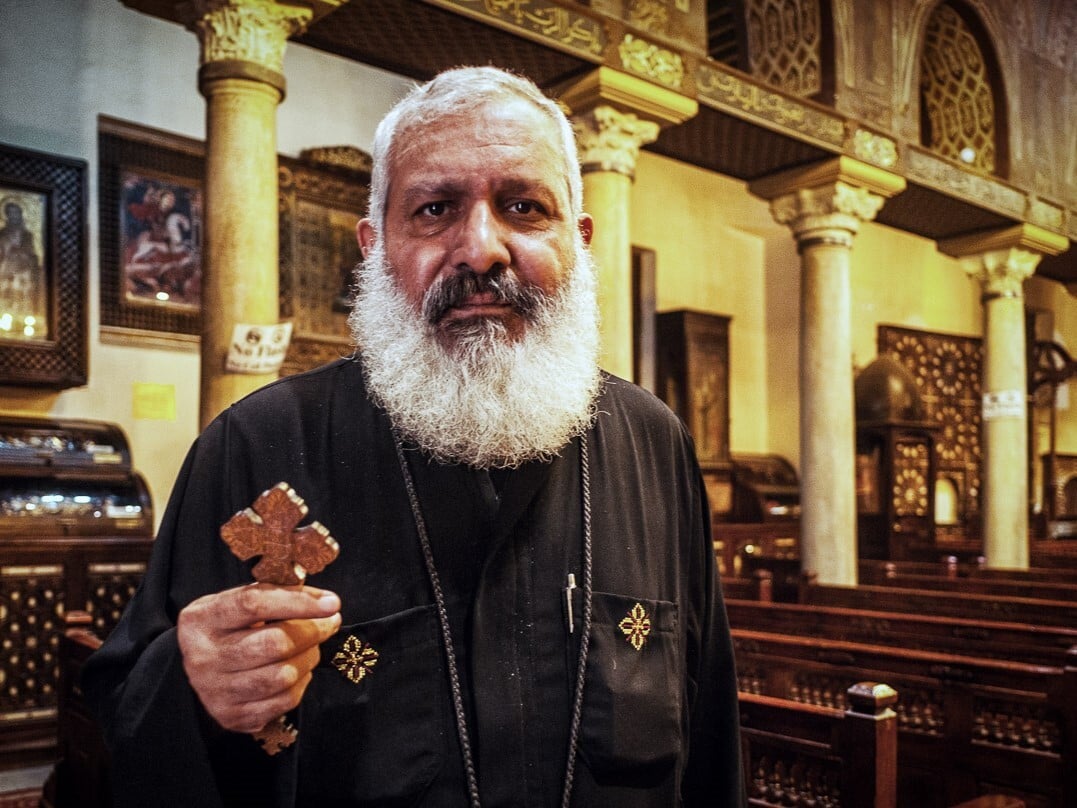
29 February 2024
Criminalizing blasphemy: Implications for Egypt’s religious minorities
The Egyptian Constitution refuses to acknowledge the existence of any other religion and faith groups.
-
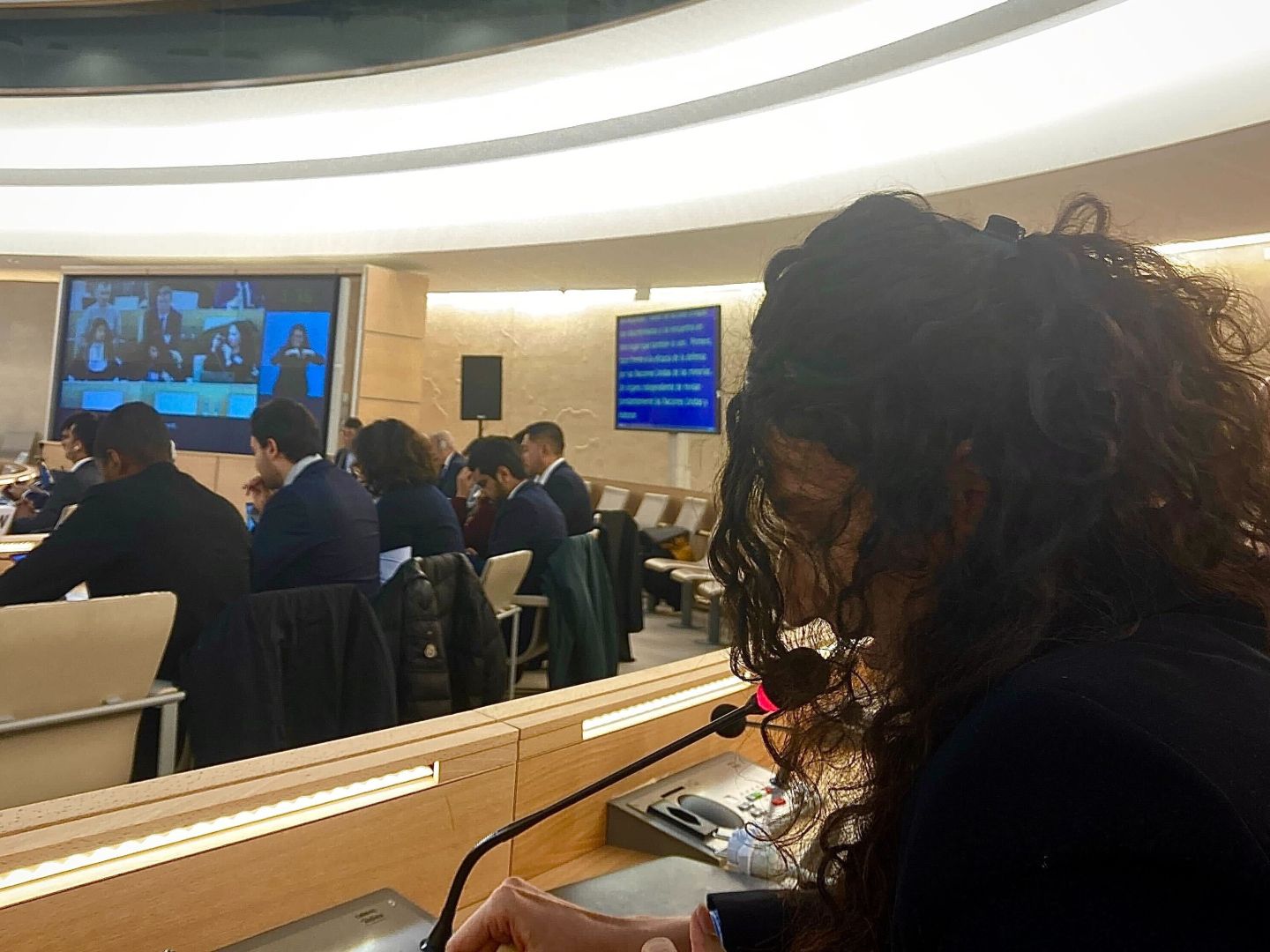
2 December 2022
MRG’s recommendations to the UN Forum on Minority Issues
This statement was delivered on 1 December 2022 by MRG’s Ifra Asad at the 15th UN Forum on Minority Issues under the agenda item,…
-
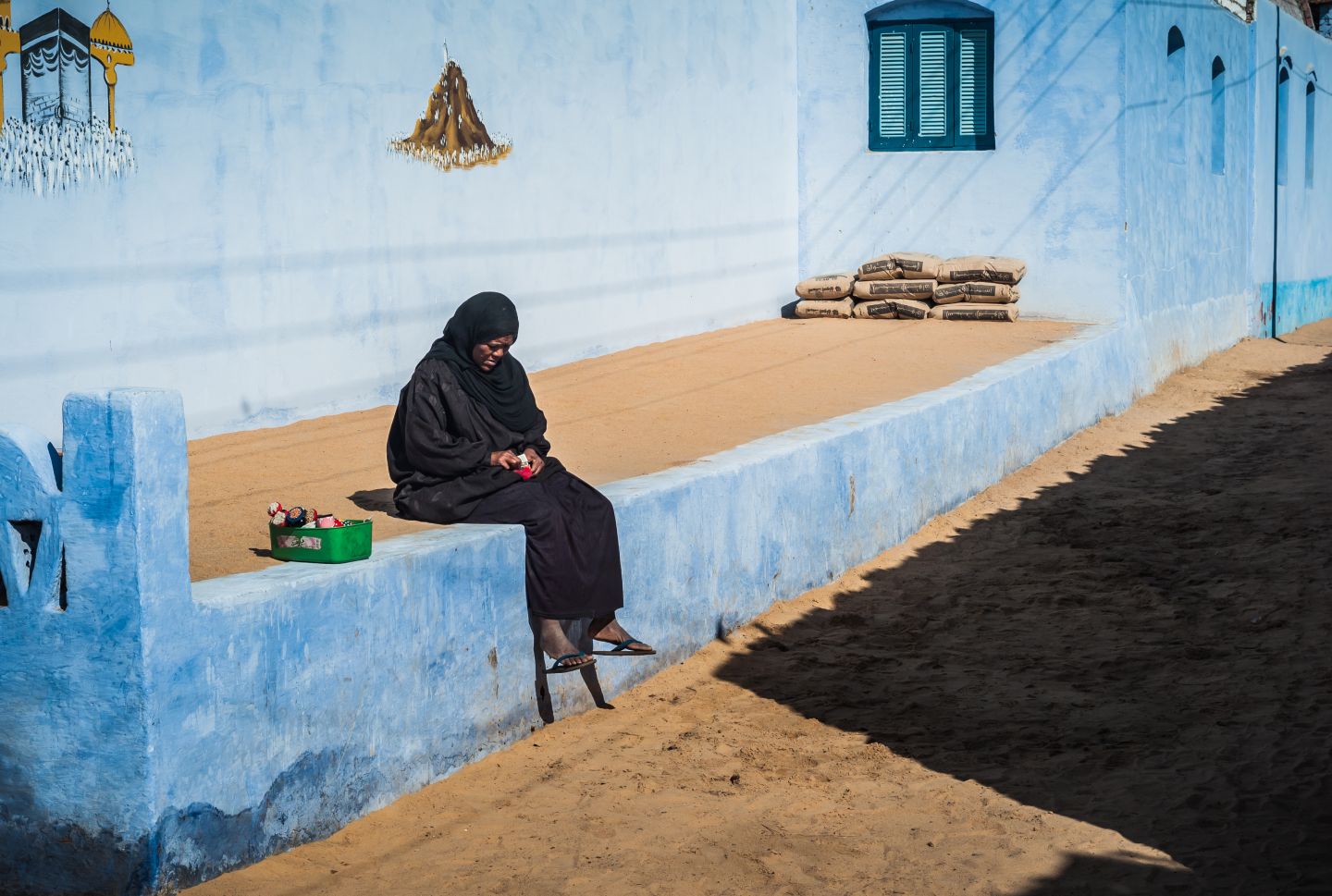
11 August 2022
Egypt’s border communities cut off from adequate healthcare, new briefing shows
انقر هنا لقراءة هذا البيان باللغة العربية. Nubian, Bedouin and Amazigh communities in Egypt have been…
Minority stories
-
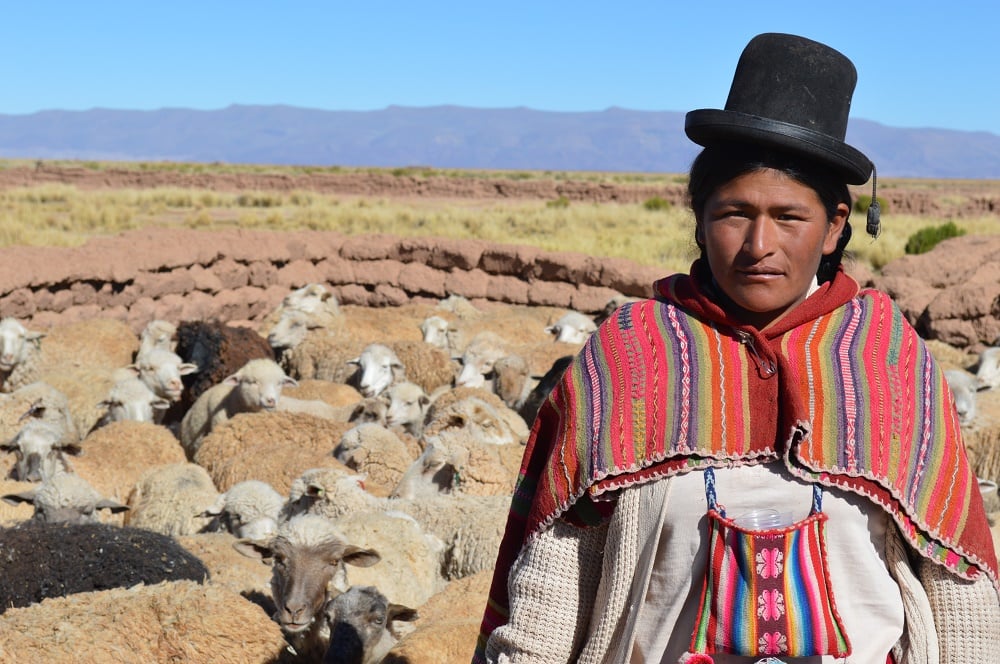
11 July 2016
State of the World’s Minorities and Indigenous Peoples 2016: Focus on culture and heritage
Five organisations from Eastern Europe came together to address the growing concern of online discrimination and hate speech against Europe's biggest minority community, the Roma.
- Central Asia
- Discrimination
- Minority stories
-
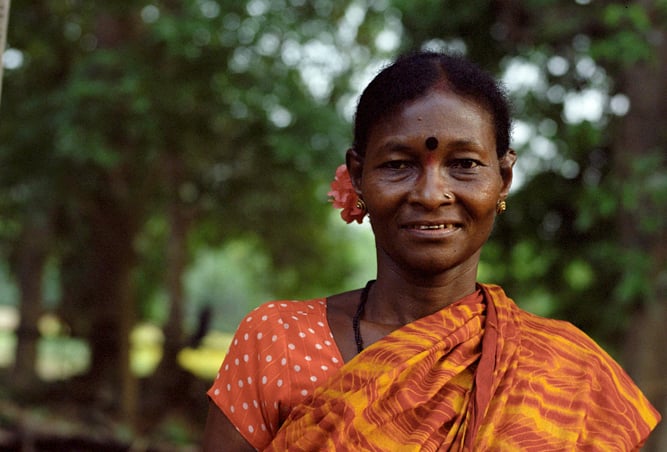
28 October 2015
Afro-Descendants: A Global Picture
Drawing on a range of case studies, this publication seeks to highlight the invisibility and discrimination that persist for people of African descent to this day, as well as celebrate their achievements as activists, artists and citizens.
- Central Africa
- Discrimination
- Minority stories
Reports and briefings
View all-
28 June 2023
Understanding barriers to health care for minorities and indigenous peoples in Egypt, Iraq and Tunisia
Minorities and indigenous peoples are among the most marginalized in terms of access to social and economic rights, and this is especially…
-
2 March 2023
The State of Cultural Citizenship for Egyptian Minorities
This report argues for the need to reframe the concept of citizenship, as expressed by the Egyptian Constitution and state institutions….
-
11 August 2022
Health services for Egyptian Border Communities during the Covid-19 pandemic
This briefing reviews the experiences of minorities and indigenous peoples in Egypt during the Covid-19 pandemic, including their living…
Programmes
-
- Egypt
- Religious minorities
Don’t miss out
- Updates to this country profile
- New publications and resources
Receive updates about this country or territory
-
Our strategy
We work with ethnic, religious and linguistic minorities, and indigenous peoples to secure their rights and promote understanding between communities.
-
-
